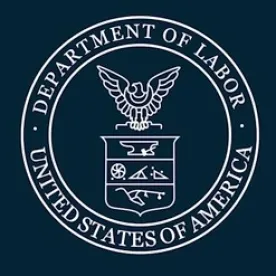On April 26, 2021, the U.S. Department of Labor (DOL) posted an update on its blog regarding its new Essential Workers, Essential Protections initiative, which is designed to “ensure that workers know about the wage and hour laws that protect them – and how to contact [the DOL] to get help if they need it.”
In addition to linking a number of existing DOL webpages regarding the Fair Labor Standards Act and the Family and Medical Leave Act, the blog post also links to details regarding a series of nationwide webinars the DOL is hosting “to educate worker advocates, employers and other stakeholders answering questions that have arisen during the pandemic.” The training webinars are specifically directed to “[w]orkers in grocery stores, health care, delivery services, retail establishments, agriculture, and other essential industries.”
The blog update also links to recently posted answers to frequently asked questions (FAQs) about pandemic-related scenarios. Although the DOL has posted FAQs for much of the pandemic, the DOL recently updated them to include topics like temperature checks/health screenings and COVID-19 testing. The DOL confirmed that the time nonexempt employees spend waiting for, and undergoing, such activities is compensable when it occurs during the workday. When such activities are required before the start of the workday as a condition of entering a job site, or during an off-day for the worker, the DOL confirmed that the time is compensable if it is integral and indispensable to the worker’s job, which the DOL found to be the case with respect to nurses and front-line grocery workers because they provide “direct patient care services” and have “significant interaction with the general public,” respectively. In both examples, the DOL commented that the activities were necessary for the workers to perform their jobs safely and effectively during the pandemic.
The Supreme Court of the United States addressed the integral and indispensable test in 2014, when it unanimously held that time spent by warehouse workers engaged in mandatory post-shift security screenings was not compensable because those workers were hired to retrieve products from warehouse shelves, not to undergo screenings. The Court noted that the employer in that case could have eliminated the screenings altogether without impairing the employees’ ability to complete their work.
For now, the DOL has not clearly expanded the test set forth by the Supreme Court in 2014, but it remains to be seen whether the DOL will take the position that the time spent by all nonexempt employees who are required to undergo temperature checks and health screenings as a pre-shift condition of entering their jobsites is integral and indispensable to their principal work activities, and therefore compensable under the FLSA, or if the compensability is limited to front-line workers who work in close proximity with members of the general public.




 />i
/>i

